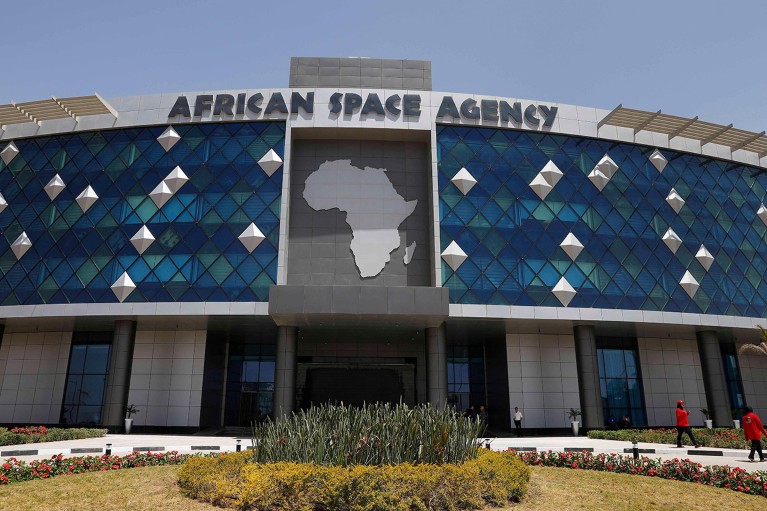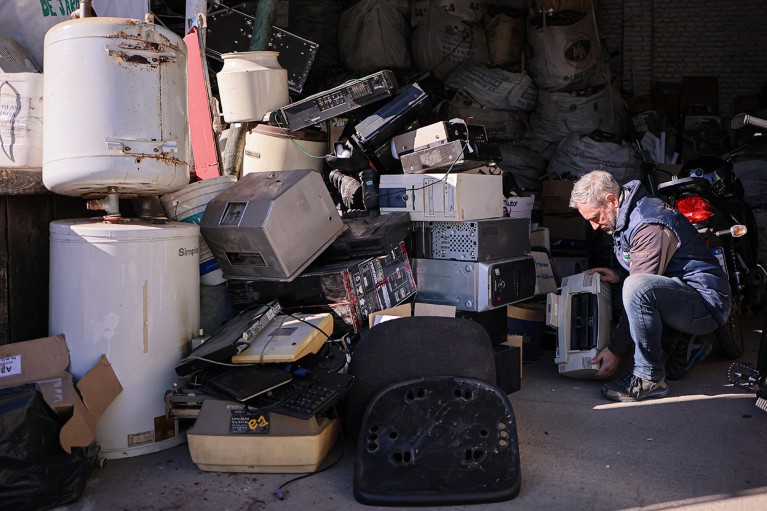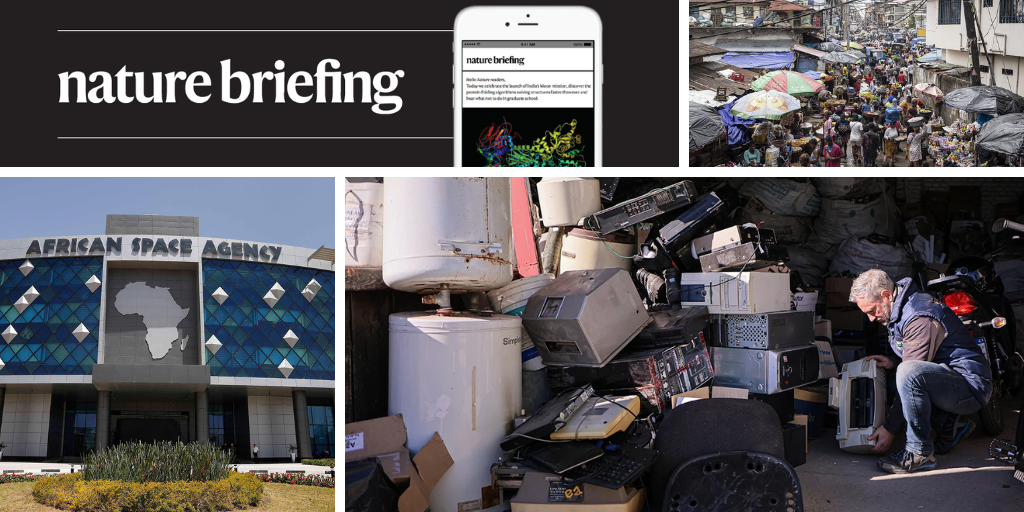You have full access to this article via your institution.
Hello Nature readers, would you like to get this Briefing in your inbox free every day? Sign up here.

The African Space Agency is headquartered in Space City, Cairo.Credit: Ahmed Gomaa/Xinhua via Alamy
The African Space Agency (AfSA), inaugurated in April, aims to co-ordinate the work of the continent’s more than 20 existing space programmes. The African Union will provide the core of the agency’s funding, with more likely to come from partnerships with China and other space big-hitters. The AfSA will prioritize communication satellites, as well as monitoring satellites to help track climate change, support agriculture and manage natural resources. “We are realistic,” says AfSA space engineer Meshack Kinyua Ndiritu. “We want to walk before we can run.”
A surge of mpox infections in Sierra Leone has stretched the country’s health-care system, sparking fears that the virus will spread to neighbouring countries in West Africa. Sierra Leone has confirmed more than 3,000 infections in the last month, and an analysis of viral genomes suggests there have been at least four times more infections than officially reported, says genomic epidemiologist Edyth Parker. The recent withdrawal of US funds for foreign aid will make curbing the outbreak even more difficult, experts say.
Reference: Virological.org analysis
A new scoring method — the Research Integrity Risk Index — could make it easier to spot universities that are chasing publishing metrics at the expense of rigorous science. The index categorizes institutions based on how many of their papers are retracted or published in low-quality journals. Such scoring could improve university ranking systems that currently reward quantity of research output over quality. The measure is not designed to identify research misconduct, “but reveal vulnerabilities warranting further review”, says information scientist Lokman Meho, who developed the tool.
Reference: arXiv preprint (not peer reviewed)
For years, conservationists in Africa have been taking desperate measures to stop rhino poaching: removing the animals’ horns. Now a study in South Africa reveals that the strategy works, reducing poaching by 78% on reserves where it’s done. “It is kind of a necessary evil,” says biodiversity scientist and co-author Tim Kuiper. “There’s no doubt it saved hundreds of rhinos’ lives.”
Features & opinion
Dozens of NASA missions are on the chopping block if the budget proposed by US president Donald Trump comes to fruition. But the enthusiasm for Mars knows no bounds: Trump’s team has proposed spending some US$1 billion in 2026 to prepare for a trip to the Red Planet, but analysts say that the final cost of such a mission could be closer to hundreds of billions of dollars. Nature reporter Alexandra Witze talks to the Nature Podcast about how the pieces fit together, and how they mesh more widely with Trump’s impact on US science.
Nature Podcast Extra | 12 min listen
Where I work

Sebastián Gregui is the owner of Gregui Pisos y Revestimientos in Tandil, Argentina.Credit: Luciano Gonzalez/Anadolu via Getty
Microwaves, computers and washing machines have one thing in common: the hard plastic ABS, short for acrylonitrile butadiene styrene. In Argentina, Sebastián Gregui’s company grinds up this material — which otherwise is rarely recycled — and incorporates it into concrete to make a material dubbed PlastiHormigón (PlastiConcrete). Each month, the company saves about three tonnes from landfill. “The plastic makes the concrete more flexible, more resistant to heat and cold, and lighter,” says Gregui. “But for us, it’s enough to know that we are doing the right thing.” (Nature | 3 min read)
On Friday, Leif Penguinson paid a visit to a Black swan (Cygnus atratus) and its cygnets in Kalbarri National Park, Western Australia. Did you find the penguin? When you’re ready, here’s the answer.
Thanks for reading,
Flora Graham, senior editor, Nature Briefing
With contributions by Jacob Smith
Want more? Sign up to our other free Nature Briefing newsletters:
• Nature Briefing: Careers — insights, advice and award-winning journalism to help you optimize your working life
• Nature Briefing: Microbiology — the most abundant living entities on our planet — microorganisms — and the role they play in health, the environment and food systems
• Nature Briefing: Anthropocene — climate change, biodiversity, sustainability and geoengineering
• Nature Briefing: AI & Robotics — 100% written by humans, of course
• Nature Briefing: Cancer — a weekly newsletter written with cancer researchers in mind
• Nature Briefing: Translational Research — covers biotechnology, drug discovery and pharma


